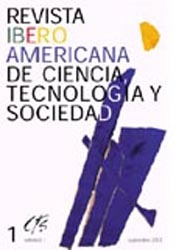Ciencia y Sociedad Civil
DOI:
https://doi.org/10.52712/issn.1850-0013-1097Palabras clave:
tecnociencia, cultura académica, cultura científica, ciencia y sociedad civilResumen
En la sociedad capitalista actual se acepta comúnmente que el papel de la ciencia es servir a la práctica social a través de sus capacidades instrumentales. Se confunde así a la ciencia con la tecnología y se celebra la tecnociencia como instrumento para alcanzar fines sociales o materiales, determinados por distintos poderes sociales fácticos. Sin embargo, esta preeminencia de la tecnociencia también hace a la ciencia sospechosa para el público y ambigua en su papel social. Por eso la empresa científica necesitaría ser políticamente corregida para asegurar que el público se contacte con ella en un ambiente de verdadero espíritu iluminador. La ciencia puede desempeñar un papel relevante combatiendo la tecnocracia desde la crítica y la imaginación de escenarios alternativos, aportando la defensa de los valores humanos que deben subyacer a nuestra civilización. Su papel no instrumental como órgano de la sociedad civil es un elemento esencial de la democracia pluralista, y esta vital función social es posible gracias a las prácticas académicas tradicionales. La futura relación de la ciencia con la sociedad no debe constituirse desde la tecnociencia utilitaria, sino desde su libertad para desarrollar su papel no instrumental y crítico que sostiene y enriquece la democracia pluralista.
Descargas
Descargas
Publicado
Cómo citar
Número
Sección
Licencia
Derechos de autor 2025 CC Attribution 4.0

Esta obra está bajo una licencia internacional Creative Commons Atribución 4.0.
Todos los números de CTS y sus artículos individuales están bajo una licencia CC-BY.
Desde 2007, CTS proporciona un acceso libre, abierto y gratuito a todos sus contenidos, incluidos el archivo completo de su edición cuatrimestral y los diferentes productos presentados en su plataforma electrónica. Esta decisión se sustenta en la creencia de que ofrecer un acceso libre a los materiales publicados ayuda a un mayor y mejor intercambio del conocimiento.
A su vez, para el caso de su edición cuatrimestral, la revista permite a los repositorios institucionales y temáticos, así como también a las web personales, el auto-archivo de los artículos en su versión post-print o versión editorial, inmediatamente después de la publicación de la versión definitiva de cada número y bajo la condición de que se incorpore al auto-archivo un enlace a la fuente original.











